Indian cinema is a blend of color, drama, and emotion. But the real soul of cinema lies in the songs. Even today, audiences remember Bollywood films more through their songs. Happiness, sadness, love, or separation—there are songs for every moment. These songs are not just background tunes; they touch our lives as well. Our parents listened to them, we listened to them, and today’s generation is listening too. That is why these tunes have survived from generation to generation.
While the actors lip-sync on screen, the real voices are provided by playback singers. The characters come alive in their voices. There were legendary singers in Indian cinema like Lata Mangeshkar, Mohammed Rafi, Kishore Kumar, Asha Bhosle, who changed music forever. Without them, Bollywood would not be what it is today.
Let’s go back to that golden era, when music became the language of the human mind.
Legends of the Golden Age
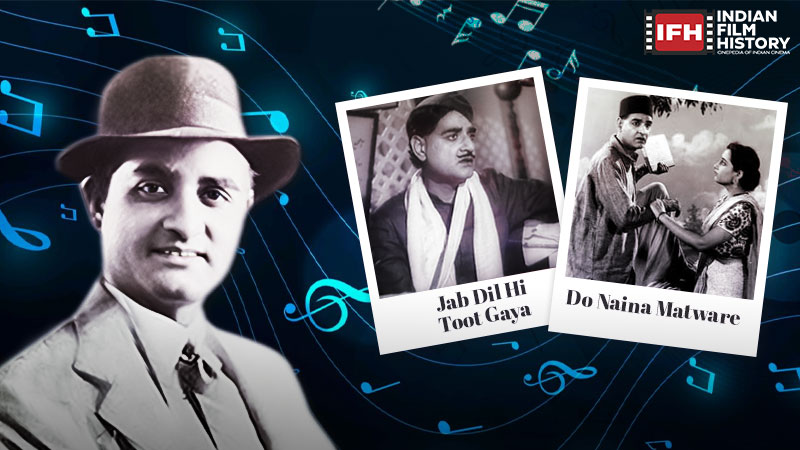
K. L. Saigal (First Superstar Singer)
Kundan Lal Saigal can be called the first playback superstar of Bollywood. Before him, actors used to sing their own songs. Saigal changed that trend. His sad and emotional voice touched everyone’s heart. From Lata Mangeshkar to Kishore Kumar, many artists of the later generation were inspired by listening to his songs. He actually paved the way for all the subsequent playback singers.
Some of his unforgettable songs:
“Jab Dil Hi Toot Gaya” – The last song of his life, which is still a symbol of a broken heart.
“Do Naina Matware” – Here the magic of his voice can be heard clearly.
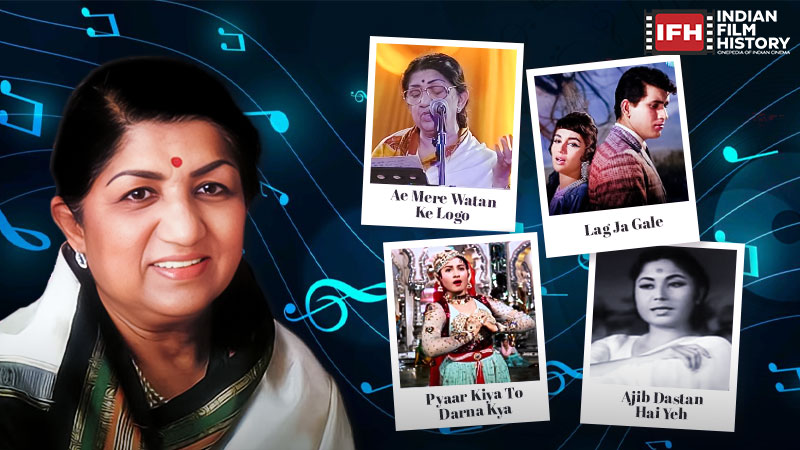
Lata Mangeshkar (Queen of Tunes)
Lata Mangeshkar was not just a singer; she was a chapter in the history of Indian music. For more than seventy years, she has sung thousands of songs in more than thirty languages. Her clear, sweet voice was praised worldwide, she was the nightingale of India and our Suro Samragni.
Be it sorrow, love, bhajans or folk songs, she was equally skilled in all fields. Legendary composers like Madan Mohan, Shankar-Jaikishan, S. D. Burman have gifted their best melodies in her voice.
Some of her memorable songs:
“Ae Mere Watan Ke Logo” – a tribute to the martyrs of the 1962 Indo-China War, which brought tears to the eyes of Prime Minister Nehru after listening to it.
“Lag Ja Gale” – an immortal love song, which still warms the hearts of the listeners.
“Pyaar Kiya To Darna Kya” (Mughal-e-Azam) – a symbol of courageous love and rebellion.
“Ajeeb Dastan Hai Yeh” – The deep philosophy of life is hidden in its melody.
“Tere Bina Zindagi Se Koi Shikwa To Nahi” – The perfect blend of love and pain.
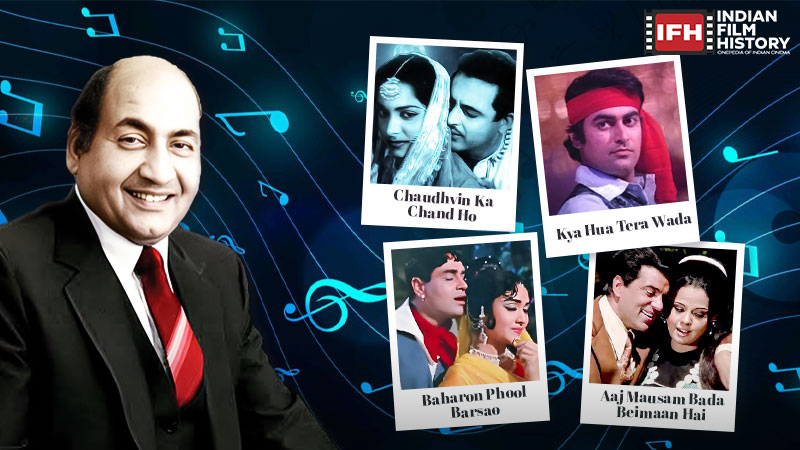
Mohammad Rafi (The Magician of Versatile Tunes)
If anyone’s name can be associated with versatility, it is Mohammad Rafi. Sadness, joy, love, devotion, thrill—his songs could suit all moods. When he sang for Dilip Kumar, he would fill with emotion, and when he sang for Shammi Kapoor, he would spread excitement. From composers Naushad to S. D. Burman—everyone loved Rafi first.
Some of his immortal songs:
“Chaudhvin Ka Chand Ho” – One of the best love songs dedicated to the beloved.
“Kya Hua Tera Wada” – The pain of betrayal and separation, which won him the National Award.
“Baharon Phool Barsao” – An evergreen song played in moments of joy.
“Likhe Jo Khat Tujhe” – This song written about a love letter is still popular today.
“Aaj Mausam Bada Beimaan Hai” – A wonderful blend of nature and love.
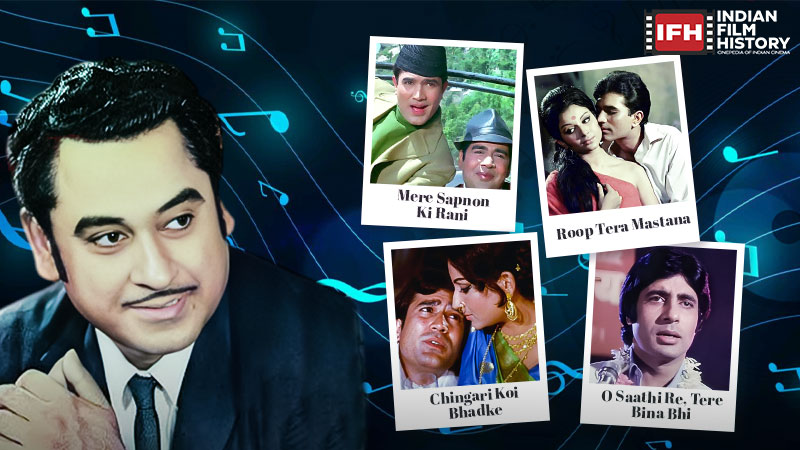
Kishore Kumar (Swabhabshilpi)
Kishore Kumar was a completely different talent. He was not only a singer – he left his mark on everything as an actor, composer, and director. His songs were sometimes mischievous, sometimes filled with deep love, and sometimes made us cry with the melody of pain. His spontaneous voice and lively manner have made him a favorite of the audience even today.
His style stood out, especially his famous yodelling, inspired by Western music. Kishore’s songs helped make Rajesh Khanna and Amitabh Bachchan superstars. He also teamed up with R.D. Burman and gave Bollywood music a fresh, modern sound in the seventies.
Some of his iconic songs:
“Mere Sapnon Ki Rani”: Listening to this song, even today, the scene of the train and Rajesh Khanna comes to mind.
“Chalte Chalte”: An eternal farewell song, which still weighs on the mind.
“Roop Tera Mastana”: The energy and romantic appeal of her singing are evident in this song.
“Chingari Koi Bhadke”: An impeccable expression of sadness and deep emotions.
“O Saathi Re, Tere Bina Bhi Kya Jeena”: The meaninglessness of living without a friend or loved one is revealed in this song.
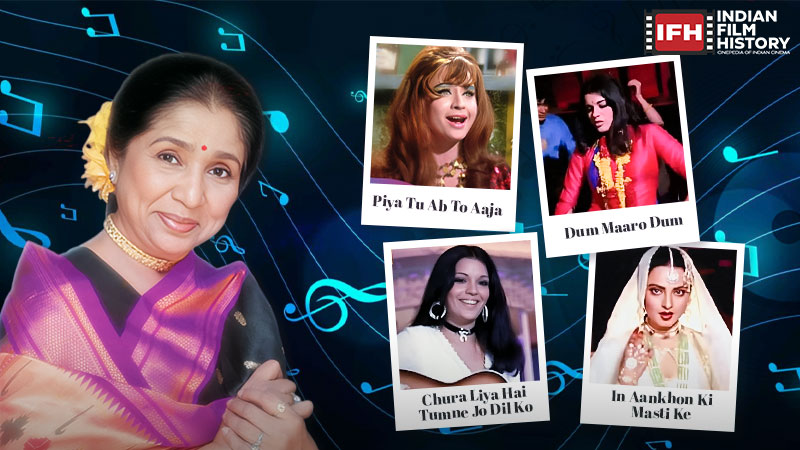
Asha Bhosle (Queen of Rhythm)
Despite being the sister of Lata Mangeshkar, Asha Bhosle created a unique and powerful identity for herself. Where Lataji’s voice was classical and sweet, Ashaji’s voice had a different appeal, modernity, and excitement. She was unrivalled in cabaret, disco, pop, and fast rhythm songs. R. D. Her partnership with Burman (Pancham Da) was legendary. Together, they experimented with many new genres in Bollywood music. Asha ji had a mischievous and lively voice that made her very popular with the younger generation. But she not only sang fast-paced songs, but also proved how well she could sing classical songs by singing ghazals in the movie “Umrao Jaan”.
Some of her iconic songs:
“Piya Tu Ab To Aaja”: Helen’s dance and Ashaji’s voice – this song makes people dance even today.
“Dum Maaro Dum”: A great reflection of the hippie culture of the 70s.
“Chura Liya Hai Tumne Jo Dil Ko”: One of the best romantic duets in Bollywood.
“In Aankhon Ki Masti”: This song is proof of how well she can sing classical songs, too.
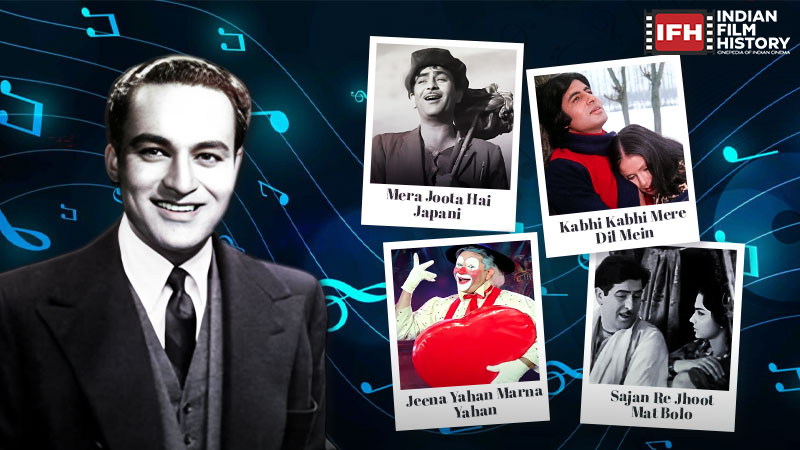
Mukesh (The voice of sadness)
Whenever it comes to songs of sadness, loneliness, or broken hearts, Mukesh’s name comes to mind first. There was such simplicity and sadness in his voice that he could easily speak to the hearts of common people. He was the ‘awaaz’ or voice of legendary actor Raj Kapoor. Almost all his songs, sung in Raj Kapoor’s style, have become timeless. Mukesh’s voice would take on a different dimension in the tunes of Shankar-Jaikishan.
Some of his iconic songs:
“Mera Joota Hai Japani”: A song about moving forward with a smile even on the difficult path of life.
“Kabhi Kabhi Mere Dil Mein”: A timeless poem of love, immortalized in the voice of Mukesh.
“Jeena Yahan Marna Yahan”: This song from the movie ‘Mera Naam Joker’ conveys a deep philosophy of life.
“Sajan Re Jhoot Mat Bolo”: A wonderful message to walk on the path of truth.
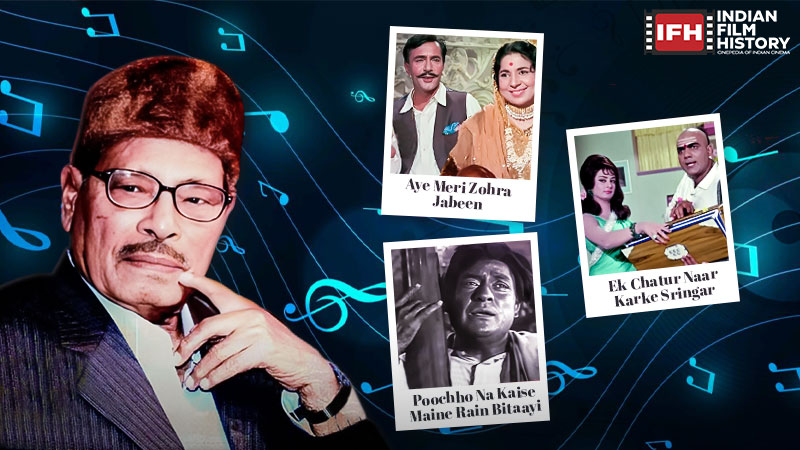
Manna Dey (Principal of Classical Music)
Manna Dey was an educated and versatile artist who had an extraordinary command over classical music. There were many difficult songs that no other singer could sing, but Manna Dey would sing those songs effortlessly. Even Mohammad Rafi once said, “You listen to my songs, and I listen to Manna Dey’s songs.” From comedy songs to bhajans, romantic songs, or qawwalis, he was equally skilled in everything.
Some of his iconic songs:
“Aye Meri Zohra Jabeen”: An evergreen love song that still resonates with people today.
“Ek Chatur Naar Karke Sringar”: His duet with Kishore Kumar is memorable in the history of Bollywood.
“Poochho Na Kaise Maine Rain Bitaayi”: A perfect example of his mastery over classical music.
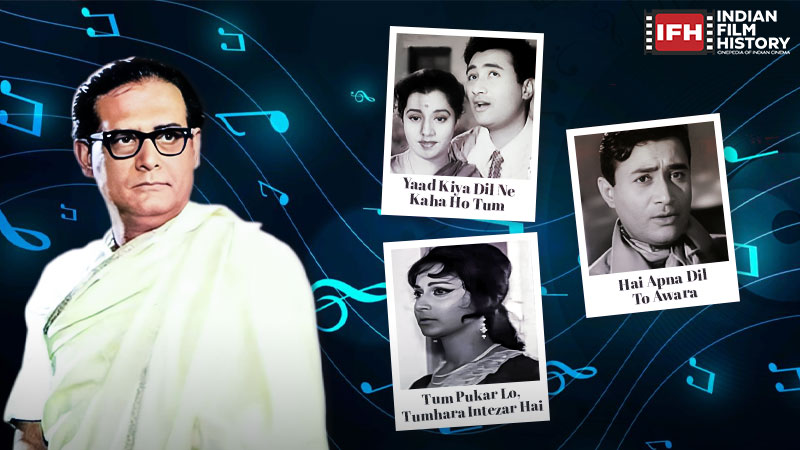
Hemant Kumar (Hemant Mukherjee)
Hemant Kumar had a deep, calm voice. It just made you feel peaceful. In Bollywood, people called him Hemant Kumar. In Bengali music, he was Hemant Mukherjee. He made a name for himself in both worlds. His voice was full of romance and depth—no one else matched it. He wasn’t just a singer, worked as a music director too. He created a sensation with his music for the film ‘Naagin’.
Some of his iconic songs:
“Yaad Kiya Dil Ne Kaha Ho Tum”: A calm, sweet love song.
“Hai Apna Dil To Awara”: An expression of an independent attitude towards life.
“Tum Pukar Lo, Tumhara Intezar Hai”: A deep ode to separation.
Conclusion
These legends didn’t just sing a few songs—they shaped India’s culture. Their voices fill our memories and mark big moments. You hear them at weddings, during breakups, on train rides—everywhere. Even today, people play their classics on YouTube and Spotify. The new generation still loves them.
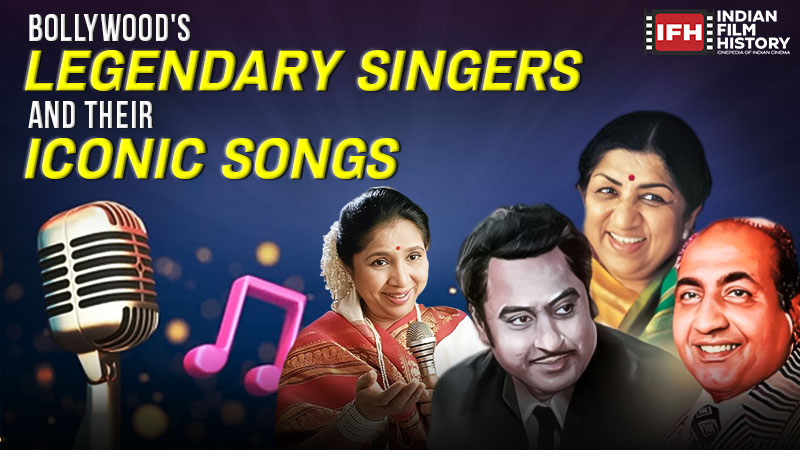
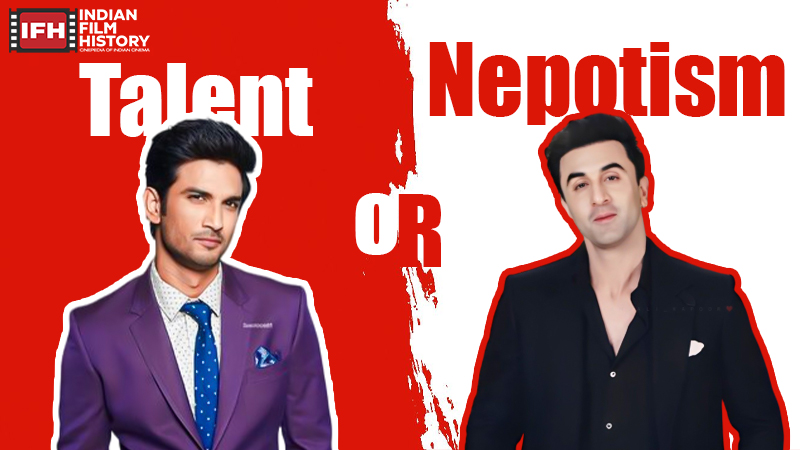
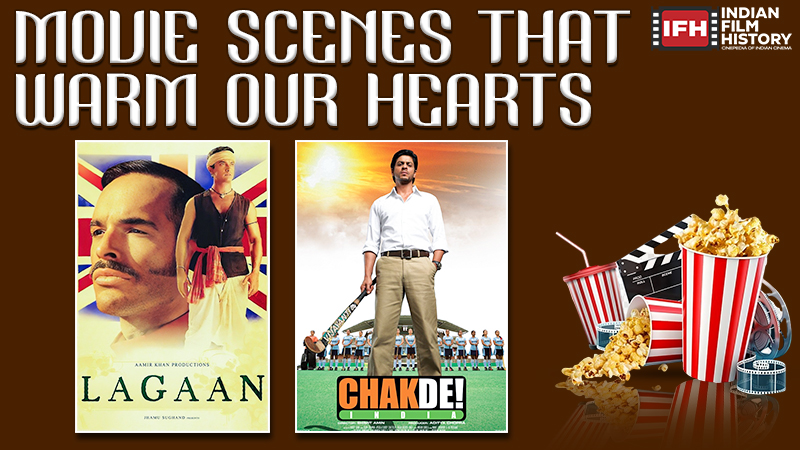

Leave a Comment